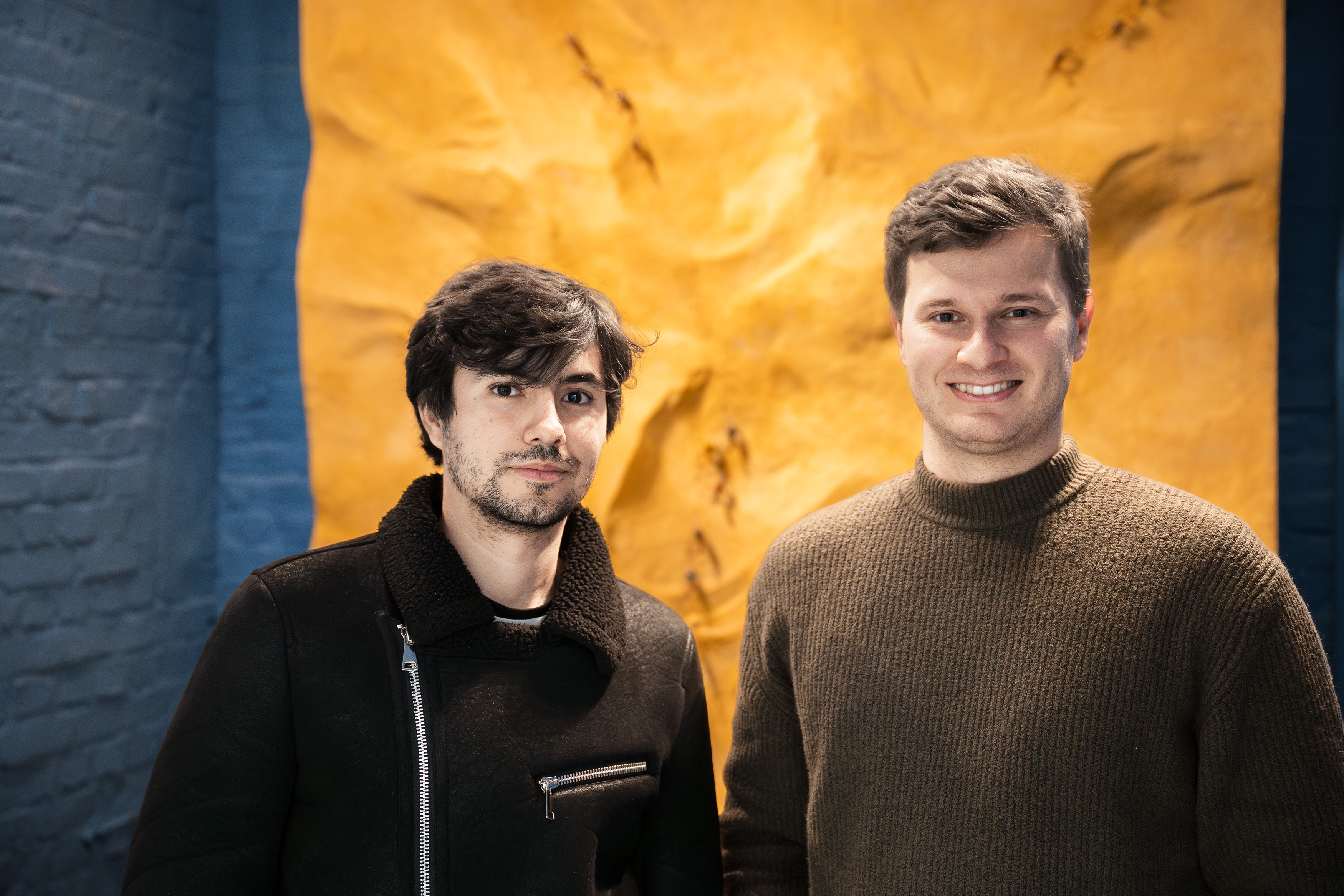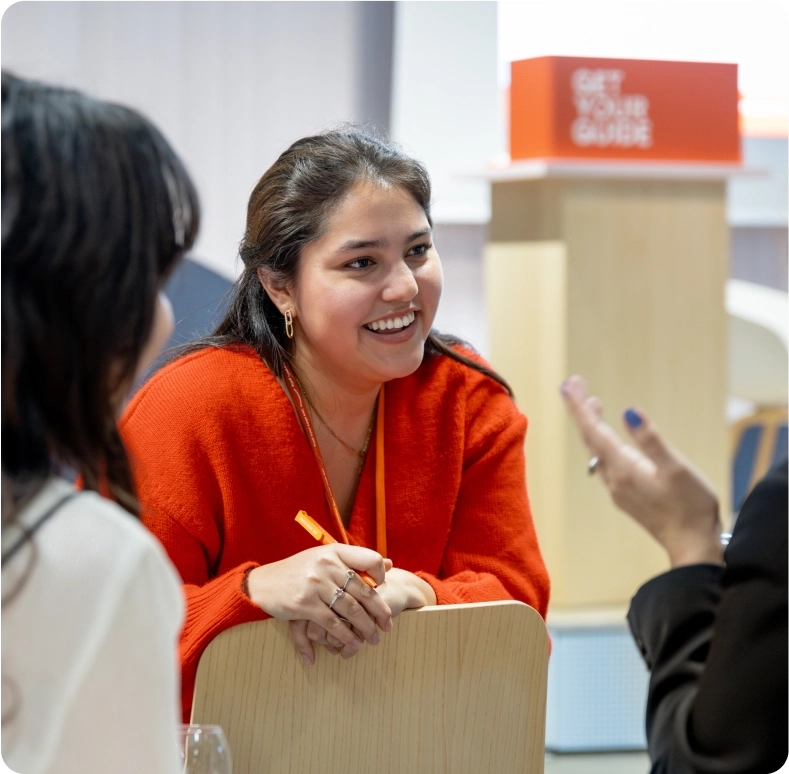A Destination Manager on Preparing Suppliers for the Return of Travel
Whether customers are traveling or not, our priority is to keep them safe.
.avif)
Key takeaways:
Sally Lee, destination manager (DM) for Hong Kong, South Korea, and the Philippines, describes her job and explains how she keeps her team resilient. She’s currently focusing on supporting travel suppliers and preparing them for the return of tourism.
As the COVID-19 pandemic continues to affect the travel industry worldwide, how are your priorities shifting?
Whether customers are traveling or not, our priority is to keep them safe. That means supporting our tour and travel suppliers on customer communication about cancellations, rebookings, and refunds. We keep our customers up to date on the latest COVID-19 information and encourage them to follow the WHO daily updates regarding safety and travel.
Internally, we update each other on attraction closures and official information on country lockdowns so relevant teams can communicate this externally to individual customers. We also make it easy for our customers to navigate to our cancellation and refund policy with updates to the front page of our website.
By keeping customers informed and engaged during this period, we’re also supporting our suppliers– positioning them for a strong recovery once it’s safe to book trips again.
If people aren’t traveling at this time, what are you working on?
We’re moving forward with expanding our inventory with suppliers by adding new products to our existing offerings. For example, this could be adding a complimentary drink to a sunset cruise, or adding a traditional meal to a walking tour. We ask ourselves how we can use this time to make travel experiences better, richer, and more memorable for customers when it’s safe for them to travel again.
To give some context, what does a destination manager do? Can you tell us a bit more about yourself?
The DM role is all about owning and developing the supply side of different destinations. Our suppliers are the local tour operators and attractions such as Ocean Park, Victoria Harbour Cruise, and Sky 100.
In general, a destination manager’s role is to:
- onboard new suppliers
- optimize tours and activities
- builds strong relationships with local stakeholders in the tourism industry
- structure the overall strategy for each region
What I love most about being a destination manager, is that you are not fixed to one job description. You are not just a salesperson, strategist, company representative, or consultant because you are all of these.
I’ve been working as a destination manager for two years now, covering Hong Kong, South Korea, and the Philippines. I was born and raised in South Korea and came to Hong Kong for university, and have been here for more than seven years now.
What does the average day of a destination manager look like?
A normal work day in this role will cover at least these three of these touch points:
Checking in on the numbers: I look into customer reviews of our tours and experiences, analyze web traffic to product pages and certain regions, see where the demand is, check specific supplier’s performance metrics and see where we can help them improve their tours.
By keeping customers informed and engaged during this period, we’re also supporting our suppliers– positioning them for a strong recovery once it’s safe to book trips again.
Monitoring the industry: I conduct research to follow what’s trending in the industry. At the moment, everything is affected by COVID-19, but another example could be increased booking with mobile apps.
Based on that trend, we may need to improve on making our products more available at the last minute since mobile bookings may mean more spontaneous decision-making. I also always try to figure out how we can create extra value to a tour such as adding food options or hotel transfers.
Share and receive learnings from other APAC offices: We have teams in Dubai, Sydney, Bangkok, Hong Kong, and Tokyo. From such a diverse team, I learn different strategies and perspectives on supporting different types of partners from big attractions to resellers. I’ve honed in on how to spot opportunities in the region by combing through the metrics and analyzing the performance of each region.
{{divider}}
What are some ways that you collaborate with the regional offices?
We have a huddle every week where DMs from different offices attend a conference call to share weekly learnings and challenges. Sometimes, teammates from other offices visit our office.
And of course, we have the Winter Summit in the Berlin office every year, so everyone from the global offices meet each other and share learnings. I also schedule one-on-one calls with colleagues of other offices to hear about their recent updates and talk about how to build the business better.
{{quote}}
When I first started managing the Philippines, I scheduled a call with colleagues in Bangkok to better understand the Southeast Asian tourism industry. They gave me key insights, proper training, and shared their experiences on how to set up certain types of tours like island hopping and ferry services.
These were completely new product categories for me but the impromptu training with the Bangkok team helped me walk into supplier negotiations with confidence.
What’s the general office environment like in the Hong Kong office?
The Hong Kong office is located in the heart of Hong Kong island, Central, Lan Kwai Fong, but we are currently working from home. We are probably one of the smallest offices among our international teams, but I believe our growth has been amazing.
What’s our secret to success?
To succeed and stay strong, we apply these values every day:
Learning: Everyone has an entrepreneurial spirit in this team, and we’re able to do that by constantly learning and adapting to change. Since the local team is quite small, each of us really needs to own our destinations and take responsibility.
We grow with our destinations and every mistake is a lesson. It is almost like owning my own business, and whatever happens in these destinations are solely on my plate. I’ve been through so many happy I want to cry moments with each of the destinations I’m responsible for, but in the end, they are all my babies.
Positivity: Things happen. Macro-level events that you cannot control might disrupt your regions’ growths, or some suppliers may refuse to work with you for many different reasons. However, we try not to get frustrated.
These challenges are the moments that differentiate us from others, and also the moments we earn the most valuable learnings. Therefore, being positive and resilient and trying my best to figure out what I can do in difficult situations would be the go-to strategy in our team.
Can you describe the office culture in the Hong Kong office, even virtually?
My team empowers me to be confident and autonomous. They provide great advice, share their experiences, or sometimes simply tell me, you can do this. These small things genuinely make a difference. I am not being told what to do, but I am given sufficient amounts of guidance and support to excel at what I do.
What’s your approach to work and what are some cool things you have achieved so far?
All the challenges of this job are different, and your approach might vary based on what type of situation you are dealing with. For myself, I think of plans A, B, and C on how to deal with a challenge and talk to another teammate who has similar experiences before making a decision.
This one time, I had to onboard an island hopping tour in the Philippines and had a chance to meet the actual island owner who runs an exclusive tour. I was anxious to chase him, thinking that he was busy and might not have time for our partnership.
When this period is over, we expect travelers to be more sensitive towards hygiene during tours and activities. Therefore, I’m encouraging suppliers to provide hand sanitizers or detergent wipes to customers when tours begin again.
However, my colleague, who is seasoned in working with big hotel chain owners, gave me some great advice. Rather than pushing our ideas on to the island owner, I took the opportunity to get to know him, understand his personality and what he wants to do with his business.
By practicing active listening, I better understood his motives. I learned that he wanted to make this island famous globally, rather than just earning profit from running tours. With this deeper understanding, I started thinking of more ways to depict his island beautifully in the tour description.
I was thinking of how we can make sure there were a healthy flow of regular views on his product page. In the end, I was able to onboard that tour, which became one of the top tours, and the island owner regularly texts me holiday greetings and booking recommendations.
How do you assess the products and connect with your suppliers in different regions?
In the pre-travel ban days, we would visit suppliers across the region to deepen our relationships with them. These trips brought me to beautiful destinations in South Korea and the Philippines. During these visits, tour agencies and owners would ask me for advice on how to build their business.
When this period is over, we expect travelers to be more sensitive towards hygiene during tours and activities. Therefore, I’m encouraging suppliers to provide hand sanitizers or detergent wipes to customers when tours begin again.
Then, they would invite me on tours so I could give honest feedback on how to make these experiences more valuable for customers. I would also use the time on-site to meet with corporate executives of travel companies to discuss the latest visitor trends.
When this period is over, we expect travelers to be more sensitive towards hygiene during tours and activities. Therefore, I’m encouraging suppliers to provide hand sanitizers or detergent wipes to customers when tours begin again.
Another trend we would expect in the future, is a preference for private tours over group tours. We're currently working on onboarding various private tours that would help customers feel safer since they will be among their own group, which minimizes their physical interaction with the general public.
Given the current situation, we’re communicating with suppliers through frequent calls and emails. I also share useful business articles, our own support pages, or webinars to support them in getting the information they need on how to overcome challenges in the current landscape.
Just recently, I asked my suppliers to check out Tao's Q&A webinar on Arival Online so they could better understand our business direction from someone on the executive team. We’re optimistic about the future and are focused on navigating this situation with our suppliers and giving them support.
For updates on our open positions check out our Career page.
These challenges are the moments that differentiate us from others, and also the moments we earn the most valuable learnings. Therefore, being positive and resilient and trying my best to figure out what I can do in difficult situations would be the go-to strategy in our team.



.JPG)

.jpg)
